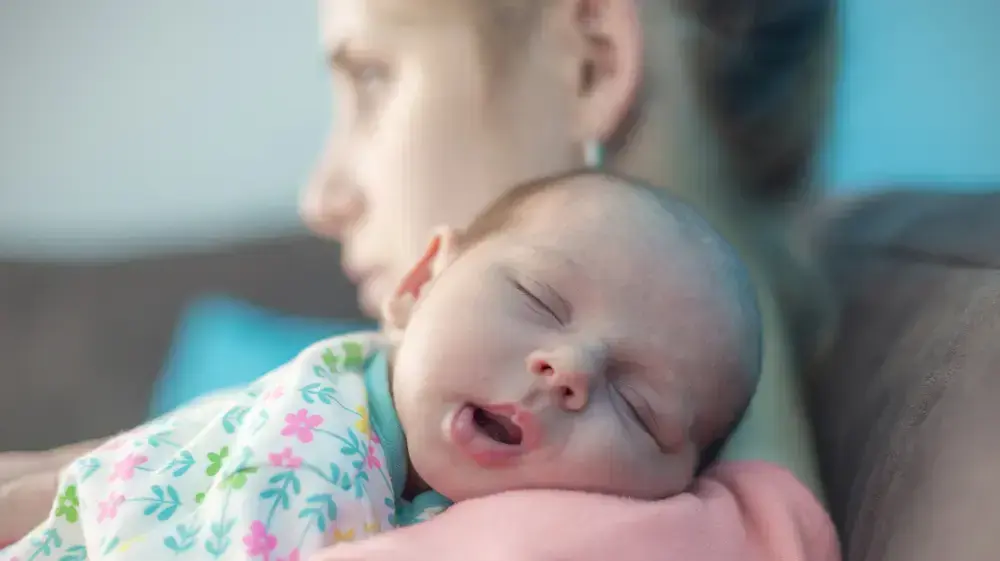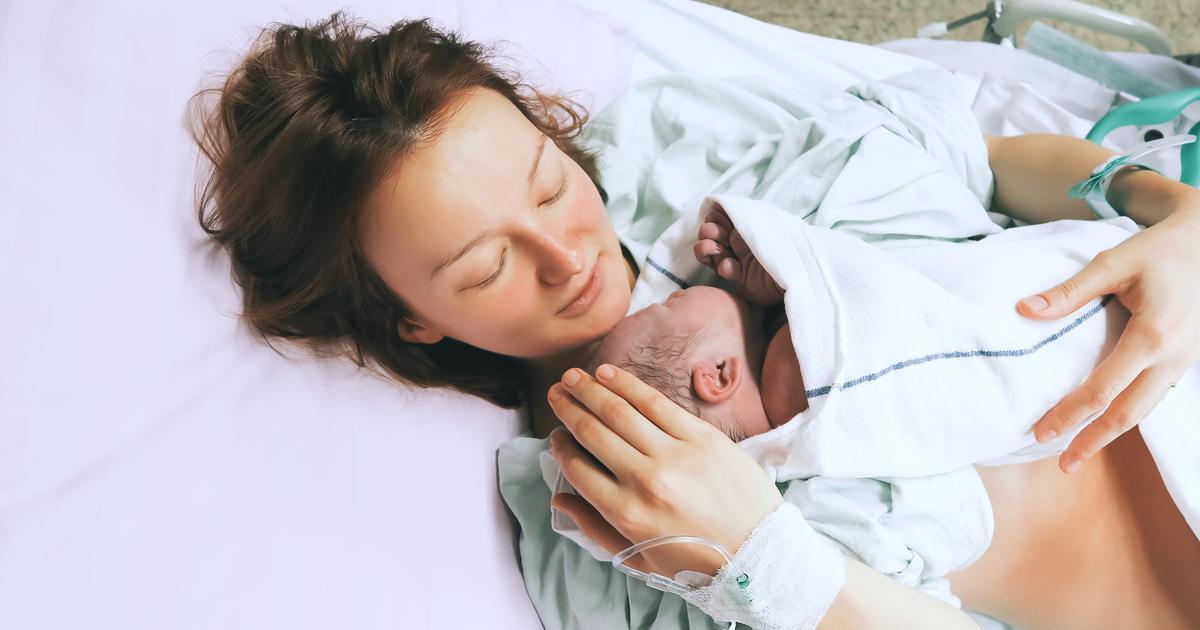Single women and first-time mothers: 84 out of a thousand women have postpartum depression
A new study shows that mothers with whom more depressive symptoms appeared are less likely to seek mental health help to avoid the stigma that may be sticking to them. Researchers at Ben-Gurion University called for the establishment of dedicated centers for the treatment of the phenomenon: "The issue is worrying and emphasizes the importance of early detection"
Single women and first-time mothers: 84 out of a thousand women have postpartum depression
Photo by Roni Kanfu, Editing: Tomer Levy(In the video: List of medicines and technologies to be added to the health basket)
Low-socioeconomic women, single women, first-time mothers, newcomers, and unemployed spouses are more likely to suffer from postpartum depression, according to a study published by the National Institutes of Health Policy. According to the results, 8.4% of a thousand women surveyed were diagnosed with postpartum depression - and the more mothers who had postpartum depression symptoms, the less likely they were to seek treatment for the problem they were suffering from and to receive counseling and mental assistance.
According to the study, led by Dr. Meital Simchi and assisted by Prof. Orly Sarid and Prof. Julie Zwickel of Ben Gurion University in Be'er Sheva, mothers suffering from postpartum depression preferred to receive private clinics or health clinics, rather than mental health clinics or psychiatric centers. In addition, women with postpartum depression preferred treatment from mental health professionals, and women with postpartum depression preferred treatment through group support groups and psychotherapy rather than technology-based treatments such as Skype calls. .
The findings support the formulation of a health policy in Israel that will be based on understanding the preferences of mothers suffering from postpartum depression. Among other things, the researchers believe that dedicated centers should be set up to treat the phenomenon that can help the welfare of their mothers, newborns and their families. In addition, they say disseminating the results of current research among professionals as part of vocational training can promote proper and appropriate care for postpartum depression mothers.
Read more on the subject
Corona panic: An isolated hospital for hospitalization established at Sheba "Red Line" hospital: 95% of doctors and students for short-term appointments Ministry of Health data: Most justified complaints - against Maccabi exfoliating "weekend" coffers - the new technological charm that enriches and renews the facial skin Promoted ContentWomen with postpartum depression prefer treatment from mental health professionals (Photo: ShutterStock)
Sad mother holding baby (Photo: ShutterStock)
"What we tested is the preferences. Instead of asking professionals what's right for women, we wanted to hear what women want them to do to promote post-natal care," Dr. Simchi explained. "Today, studies show that women are less interested in seeking treatment, which is something That we really want to promote. The study showed that women with postpartum depression would want to be treated in the private sector or community health funds - which is very much in line with mental health reform. They do not want to contact mental health centers for fear of labeling anything related to mental health. It actually protects them and can prevent treatment. What was interesting was that they would like to have it at the box office or the private sector - but by mental health experts. "
According to Simhi, the health system must work to locate the same women in the risk groups in question. "You need to keep your eyes open. A dairy nurse can pay attention to the same risk groups and raise awareness. There is no need to hide, be tortured and treatable, which is very important. Post-natal depression labeling can prevent women from seeking treatment. "The women know what they want and should try to develop a solution for them. If the Ministry of Health develops a response to those women according to what they want, more and more women, from a wider range, will apply for treatment."
More in Walla! NEWS More in Walla! NEWSSocial Initiative to Prevent Child Abuse: "The phenomenon can be prevented"
To the full articleInjury to both mother and baby
According to medical literature, the proportion of women suffering from postpartum depression is estimated to be about 9% to 17% of all births, which is also in line with the results of the study. Among women of low socioeconomic status and new immigrants, the rates are even higher. Symptoms of postpartum depression include sadness, despair, feeling helpless, sleep and eating disorders, feeling guilty, exhaustion, low energy, anger, anxiety, and a lack of care for the baby. Because these symptoms can significantly harm both the mother and the baby, researchers say it is very important to treat the phenomenon of postpartum depression.
The women who participated in the study are Hebrew speakers who came for a test at dairy drop clinics for a period of nine weeks to six months after birth. All women responded to a dedicated questionnaire, with more than 90% responding to the study. The women were asked questions about their preferred place of care (if you had postpartum depression, where you would prefer to be treated), preferred treatment factors (if you felt postpartum depression, to what extent would you prefer the treatment of the following professionals - nurses, social workers, psychiatrists, etc. ), Type of treatment (There are many ways to get treatment. To what extent do you feel that the following options will fit your needs? Home visits, Skype-based therapy, group meetings, etc.) and willingness to receive treatment (if you have postpartum depression, would you go for treatment? 1- Very likely since up to 4 - sure not).
"Post-natal depression labeling can prevent women from seeking treatment." Dr. Simchi (Photo: Courtesy of the photographers)
Dr. Meital Simchi (Photo: Courtesy of the photographers)
Prof. Zwickle (Photo: Courtesy of the photographers)
Prof. Sarid (Photo: Courtesy of the photographers)
Dr. Simchi, who is currently doing a Ph.D. in the United States, has done her Ph.D. in the Department of Social Work and the Center for Women's Health Research and Promotion at Ben-Gurion University. The Ph.D. was sponsored by Prof. Sarid and Prof. Zwickle. The same has been awarded in the International Fund of Excellence Research Grant.
"It is interesting to note that as the mother had more postpartum depression symptoms, she did not want to resort to treatment at all," she added. "This issue among people with depressive symptoms is extremely worrying and emphasizes the importance of identifying these women early. For example, labeling involving referral to mental health care for postpartum depression can be normalized by providing information from the medical team as early as the pregnancy, postpartum or through increased media awareness. On the phenomenon of depression and the importance of treating it. "





/cloudfront-eu-central-1.images.arcpublishing.com/prisa/EJM4QIP3DRFBDPKSBLVSA5YHYU.jpg)









